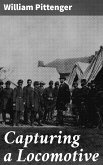Walt Whitman's "The Wound Dresser" stands as a poignant testament to the human experience during the American Civil War, encapsulating the intimate and harrowing realities faced by soldiers through the lens of a compassionate medic. In this free-verse poem, Whitman employs a style characterized by rich imagery, emotional depth, and a candid exploration of suffering and healing. The poem reflects his broader literary context, resonating with themes of democracy and humanity that underpin much of his work, while also exploring individual narratives that highlight the profound impact of war on personal and collective identities. Whitman, a crucial figure in American literature, was profoundly affected by the horrors of the Civil War, serving as a volunteer nurse and witnessing the devastating consequences of battle firsthand. His experiences inspired him to articulate not just the physical ailments of the wounded, but the deeper emotional scars they carried. This background imparts a raw authenticity to "The Wound Dresser," transforming it into both an elegy and a tribute to resilience amid chaos. Readers seeking to understand the complexities of war and the enduring spirit of humanity will find "The Wound Dresser" an indispensable narrative. Whitman'Äôs unflinching honesty and empathetic portrayal offer a deeply moving insight that resonates far beyond its historical context, making it a timeless exploration of suffering, healing, and the connections that bind us.
Dieser Download kann aus rechtlichen Gründen nur mit Rechnungsadresse in A, B, BG, CY, CZ, D, DK, EW, E, FIN, F, GR, H, IRL, I, LT, L, LR, M, NL, PL, P, R, S, SLO, SK ausgeliefert werden.









